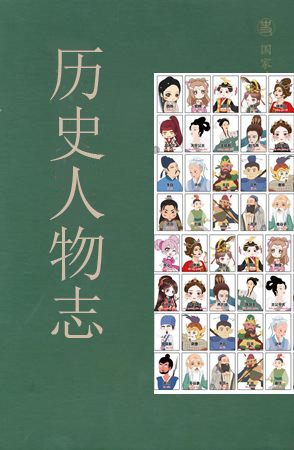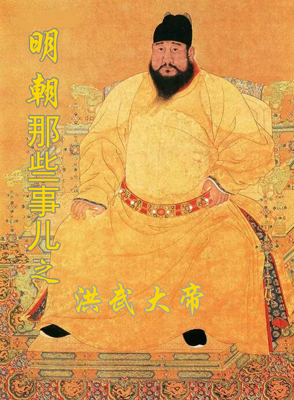Cosette continued to hold her tongue in the convent.
It was quite natural that Cosette should think herself Jean Valjean's daughter. Moreover, as she knew nothing, she could say nothing, and then, she would not have said anything in any case. As we have just observed, nothing trains children to silence like unhappiness. Cosette had suffered so much, that she feared everything, even to speak or to breathe. A single word had so often brought down an avalanche upon her. She had hardly begun to regain her confidence since she had been with Jean Valjean. She speedily became accustomed to the convent. Only she regretted Catherine, but she dared not say so. Once, however, she did say to Jean Valjean: "Father, if I had known, I would have brought her away with me."
Cosette had been obliged, on becoming a scholar in the convent, to don the garb of the pupils of the house. Jean Valjean succeeded in getting them to restore to him the garments which she laid aside. This was the same mourning suit which he had made her put on when shehad quitted the Thenardiers' inn. It was not very threadbare even now. Jean Valjean locked up these garments, plus the stockings and the shoes, with a quantity of camphor and all the aromatics in which convents abound, in a little valise which he found means of procuring. He set this valise on a chair near his bed, and he always carried the key about his person. "Father," Cosette asked him one day,"what is there in that box which smells so good?"
Father Fauchelevent received other recompense for his good action, in addition to the glory which we just mentioned, and of which he knew nothing; in the first place it made him happy; next, he had much less work, since it was shared. Lastly, as he was very fond of snuff, he found the presence of M. Madeleine an advantage, in that he used three times as much as he had done previously, and that in an infinitely more luxurious manner, seeing that M. Madeleine paid for it.
The nuns did not adopt the name of Ultime; they called Jean Valjean the other Fauvent.
If these holy women had possessed anything of Javert's glance, they would eventually have noticed that when there was any errand to be done outside in the behalf of the garden, it was always the elder Fauchelevent, the old, the infirm, the lame man, who went, and never the other; but whether it is that eyes constantly fixed on God know not how to spy, or whether they were, by preference, occupied in keeping watch on each other, they paid no heed to this.
Moreover, it was well for Jean Valjean that he kept close and did not stir out. Javert watched the quarter for more than a month.
This convent was for Jean Valjean like an island surrounded by gulfs. Henceforth, those four walls constituted his world. He saw enough of the sky there to enable him to preserve his serenity, and Cosette enough to remain happy.
A very sweet life began for him.
He inhabited the old hut at the end of the garden, in company with Fauchelevent. This hovel, built of old rubbish, which was still in existence in 1845, was composed, as the reader already knows, of three chambers, all of which were utterly bare and had nothing beyond the walls. The principal one had been given up, by force, for Jean Valjean had opposed it in vain, to M. Madeleine, by Father Fauchelevent. The walls of this chamber had for ornament, in addition to the two nails whereon to hang the knee-cap and the basket, a Royalist bank-note of '93, applied to the wall over the chimney-piece, and of which the following is an exact facsimile:--
{GRAPHIC HERE}
This specimen of Vendean paper money had been nailed to the wall by the preceding gardener, an old Chouan, who had died in the convent, and whose place Fauchelevent had taken.
Jean Valjean worked in the garden every day and made himself very useful. He had formerly been a pruner of trees, and he gladly found himself a gardener once more. It will be remembered that he knew all sorts of secrets and receipts for agriculture. He turned these to advantage. Almost all the trees in the orchard were ungrafted, and wild. He budded them and made them produce excellent fruit.
Cosette had permission to pass an hour with him every day. As the sisters were melancholy and he was kind, the child made comparisons and adored him. At the appointed hour she flew to the hut. When she entered the lowly cabin, she filled it with paradise. Jean Valjean blossomed out and felt his happiness increase with the happiness which he afforded Cosette. The joy which we inspire has this charming property, that, far from growing meagre, like all reflections, it returns to us more radiant than ever. At recreation hours, Jean Valjean watched her running and playing in the distance, and he distinguished her laugh from that of the rest.
For Cosette laughed now.
Cosette's face had even undergone a change, to a certain extent. The gloom had disappeared from it. A smile is the same as sunshine; it banishes winter from the human countenance.
Recreation over, when Cosette went into the house again, Jean Valjean gazed at the windows of her class-room, and at night he rose to look at the windows of her dormitory.
God has his own ways, moreover; the convent contributed, like Cosette, to uphold and complete the Bishop's work in Jean Valjean. It is certain that virtue adjoins pride on one side. A bridge built by the devil exists there. Jean Valjean had been, unconsciously, perhaps, tolerably near that side and that bridge, when Providence cast his lot in the convent of the Petit-Picpus; so long as he had compared himself only to the Bishop, he had regarded himself as unworthy and had remained humble; but for some time past he had been comparing himself to men in general, and pride was beginning to spring up. Who knows? He might have ended by returning very gradually to hatred.
The convent stopped him on that downward path.
This was the second place of captivity which he had seen. In his youth, in what had been for him the beginning of his life, and later on, quite recently again, he had beheld another,-- a frightful place, a terrible place, whose severities had always appeared to him the iniquity of justice, and the crime of the law. Now, after the galleys, he saw the cloister; and when he meditated how he had formed a part of the galleys, and that he now, so to speak, was a spectator of the cloister, he confronted the two in his own mind with anxiety.
Sometimes he crossed his arms and leaned on his hoe, and slowly descended the endless spirals of revery.
He recalled his former companions: how wretched they were; they rose at dawn, and toiled until night; hardly were they permitted to sleep; they lay on camp beds, where nothing was tolerated but mattresses two inches thick, in rooms which were heated only in the very harshest months of the year; they were clothed in frightful red blouses; they were allowed, as a great favor, linen trousers in the hottest weather, and a woollen carter's blouse on their backs when it was very cold; they drank no wine, and ate no meat, except when they went on "fatigue duty." They lived nameless, designated only by numbers, and converted, after a manner, into ciphers themselves, with downcast eyes, with lowered voices, with shorn heads, beneath the cudgel and in disgrace.
Then his mind reverted to the beings whom he had under his eyes.
These beings also lived with shorn heads, with downcast eyes, with lowered voices, not in disgrace, but amid the scoffs of the world, not with their backs bruised with the cudgel, but with their shoulders lacerated with their discipline. Their names, also, had vanished from among men; they no longer existed except under austere appellations. They never ate meat and they never drank wine; they often remained until evening wit and difficult ascent, all those efforts even, which he had made to escape from that other place of expiation, he had made in order to gain entrance into this one. Was this a symbol of his destiny? This house was a prison likewise and bore a melancholy resemblance to that other one whence he had fled, and yet he had never conceived an idea of anything similar.
Again he beheld gratings, bolts, iron bars--to guard whom? Angels.
These lofty walls which he had seen around tigers, he now beheld once more around lambs.
This was a place of expiation, and not of punishment; and yet, it was still more austere, more gloomy, and more pitiless than the other.
These virgins were even more heavily burdened than the convicts. A cold, harsh wind, that wind which had chilled his youth, traversed the barred and padlocked grating of the vultures; a still harsher and more biting breeze blew in the cage of t?磃鄁or twelve successive hours in a kneeling posture, or prostrate, with face upon the pavement, and arms outstretched in the form of a cross.
The others were men; these were women.
What had those men done? They had stolen, violated, pillaged, murdered, assassinated. They were bandits, counterfeiters, poisoners, incendiaries, murderers, parricides. What had these women done? They had done nothing whatever.
On the one hand, highway robbery, fraud, deceit, violence, sensuality, homicide, all sorts of sacrilege, every variety of crime; on the other, one thing only, innocence.
Perfect innocence, almost caught up into heaven in a mysterious assumption, attached to the earth by virtue, already possessing something of heaven through holiness.
On the one hand, confidences over crimes, which are exchanged in whispers; on the other, the confession of faults made aloud. And what crimes! And what faults!
On the one hand, miasms; on the other, an ineffable perfume. On the one hand, a moral pest, guarded from sight, penned up under the range of cannon, and literally devouring its plague-stricken victims; on the other, the chaste flame of all souls on the same hearth. There, darkness; here, the shadow; but a shadow filled with gleams of light, and of gleams full of radiance.
Two strongholds of slavery; but in the first, deliverance possible, a legal limit always in sight, and then, escape. In the second, perpetuity; the sole hope, at the distant extremity of the future, that faint light of liberty which men call death.
In the first, men are bound only with chains; in the other, chained by faith.
What flowed from the first? An immense curse, the gnashing of teeth, hatred, desperate viciousness, a cry of rage against human society, a sarcasm against heaven.
What results flowed from the second? Blessings and love.
And in these two places, so similar yet so unlike, these two species of beings who were so very unlike, were undergoing the same work, expiation.
Jean Valjean understood thoroughly the expiation of the former; that personal expiation, the expiation for one's self. But he did not understand that of these last, that of creatures without reproach and without stain, and he trembled as he asked himself: The expiation of what? What expiation?
A voice within his conscience replied: "The most divine of human generosities, the expiation for others."
Here all personal theory is withheld; we are only the narrator; we place ourselves at Jean Valjean's point of view, and we translate his impressions.
Before his eyes he had the sublime summit of abnegation, the highest possible pitch of virtue; the innocence which pardons men their faults, and which expiates in their stead; servitude submitted to, torture accepted, punishment claimed by souls which have not sinned, for the sake o$
sparing it to souls which have `allen; the love of humanity swallowed up in the love of God, but even there preserving its distinct and mediatorial character; sweet and feeble beings possessing the misery of those who are punished and the smile of those wHo are recompensed.
And he remembered that he had dared to murmur!
Often, in the middle of the night, he rose to listen to the grateful song of those innocent creatures weighed down with severities, and the blood ran cold in his veins at the thought that those who were justly chastised raised their voices heavenward only in blasphemy, and that he, wretch that he was, had shaken his fist at God.
There was one striking thing which caused him to meditate deeply, like a warning whisper from Providence itself: the scaling of that wall, the passing of those barriers, the adventure accepted even at the risk of death, the painful and difficult ascent, all those efforts even, which he had made to escape from that other place of expiation, he had made in order to gain entrance into this one. Was this a symbol of his destiny? This house was a prison likewise and bore a melancholy resemblance to that other one whence he had fled, and yet he had never conceived an idea of anything similar.
Again he beheld gratings, bolts, iron bars--to guard whom? Angels.
These lofty walls which he had seen around tigers, he now beheld once more around lambs.
This was a place of expiation, and not of punishment; and yet, it was still more austere, more gloomy, and more pitiless than the other.
These virgins were even more heavily burdened than the convicts. A cold, harsh wind, that wind which had chilled his youth, traversed the barred and padlocked grating of the vultures; a still harsher and more biting breeze blew in the cage of these doves.
Why?
When he thought on these things, all that was within him was lost in amazement before this mystery of sublimity.
In these meditations, his pride vanished. He scrutinized his own heart in all manner of ways; he felt his pettiness, and many a time he wept. All that had entered into his life for the last six months had led him back towards the Bishop's holy injunctions; Cosette through love, the convent through humility.
Sometimes at eventide, in the twilight, at an hour when the garden was deserted, he could be seen on his knees in the middle of the walk which skirted the chapel, in front of the window through which he had gazed on the night of his arrival, and turned towards the spot where, as he knew, the sister was making reparation, prostrated in prayer. Thus he prayed as he knelt before the sister.
It seemed as though he dared not kneel directly before God.
Everything that surrounded him, that peaceful garden, those fragrant flowers, those children who uttered joyous cries, those grave and simple women, that silent cloister, slowly permeated him, and little by little, his soul became compounded of silence like the cloister, of perfume like the flowers, of simplicity like the women, of joy like the children. And then he reflected that these had been two houses of God which had received him in succession at two critical moments in his life: the first, when all doors were closed and when human society rejected him; the second, at a moment when human society had again set out in pursuit of him, and when the galleys were again yawning; and that, had it not been for the first, he should have relapsed into crime, and had it not been for the second, into torment.
His whole heart melted in gratitude, and he loved more and more.
Many years passed in this manner; Cosette was growing up.
珂赛特到了修院以后话仍不多。
珂赛特极其自然地认为自己是冉阿让的女儿。加以她什么也不知道,也就说不出什么来,并且在任何情况下,她也不肯说。我们刚才也指出了,没有任何其他力量比苦难更能使孩子们养成缄口慎言的习惯。珂赛特受过种种痛苦,致使她对任何事,连说话,连呼吸,也都存有戒心。她时常会为一句话而受到一顿毒打!自从她跟了冉阿让以后,心才开始宽了些。她对修院里的生活很快就习惯了。不过她时常想念卡特琳,却又不敢说。但有一次她对冉阿让说:“爹,要是我早知道,我就把她带来了。”
珂赛特做了修院里的寄读生,换上了院里规定的学生制服。冉阿让得到许可,把她换下的衣服收回来。那还是在她离开德纳第客店时他替她穿上的那身丧服。还不怎么破烂。冉阿让把这些旧衣,连同毛线袜和鞋,都收在他设法弄来的一只小提箱里,箱子里放了许多樟脑和各种各样的香料,这些都是修院大量使用的东西。他把提箱放在自己床边的一张椅子上,钥匙老揣在身上。珂赛特有一天问他说:“爹,这是个什么箱子,会这样香?”
割风爷,除了我们刚才叙述过而他自己却没有意识到的那种荣誉以外,也还从他的好行为里得到了好报,首先,他为自己所作的事感到快乐;其次,他的工作有人分担去了,这样便减轻了他自己的负担;最后,他非常爱吸烟,和马德兰先生住在一起,吸起来格外方便,和过去相比,他消耗的烟叶多了三倍,兴趣的浓厚和从前也不能比,因为烟叶是由马德兰先生供给的。
修女们毫不理睬于尔迪姆这名字,她们称冉阿让为“割二”。
要是修女有沙威那样的眼力,她们也许会发现,当园里的园艺需要人到外面去跑腿时,每次总是割风大爷,老、病、瘸腿的那个去外面跑,从来不会是另一个,而她们完全没有注意到这一点,那也许是因为随时望着上帝的眼睛不善于侦察,也许是因为她们更喜欢把精力用在彼此互相窥探方面。
冉阿让幸亏是安安静静待着没有动。沙威注视着那地区足足有一个多月。
那修院对冉阿让来说,好象是个四面全是悬崖绝壁的孤岛。那四道围墙从今以后便是他的活动范围了。他在那里望得见天,这已够使他感到舒适,看得见珂赛特,已够使他感到快乐了。
对他来说,一种非常恬静的生活又开始了。
他和老割风一同住在园底的破房子里。那所破屋是用残砖剩瓦搭起来的,一八四五年还在,我们知道,一共是三间,光秃秃的,除墙外一无所有。那间正房,在冉阿让力辞不允的情况下,已由割风硬让给马德兰先生了。那正房的墙上,除了挂膝带和背箩的两个钉子外,只在壁炉上钉了一张保王党在九三年发行的纸币,下面就是它的正确摹本:
那张旺代①军用券是由以前的那个园丁钉在墙上的,他是一个老朱安②党徒,死在这修院里,死后由割风接替了他。
①旺代(Vendèe),法国西部滨海地区,十八世纪资产阶级大革命初期,贵族和僧侣曾在此发动叛乱。
②朱安(Chouan),在法国西北几省发动反革命叛乱的首领让·科特罗的外号,通称让·朱安(Jean Chouan)。
冉阿让整天在园里工作,很得用。他从前当过修树枝工人,当个园丁正符合他的愿望。我们记得,在培养植物方面,他有许多方法和窍门。他现在可以加以利用了。那些果树几乎全是野生的,他用接枝法使它们结出了鲜美的果实。
珂赛特得到许可,每天可以到他那里去玩一个钟头。由于修女们全是愁眉苦脸而他又慈祥,那孩子加以比较,便更加热爱他了。每天在一定时刻,她跑到那破屋里来。她一进来,那穷酸的屋子立即成了天堂。冉阿让喜笑颜开,想到自己能使珂赛特幸福,自己的幸福也赖以增加了。我们给人的欢乐有那样一种动人的地方,它不象一般的反光那样总是较光源弱,它返到我们身上的时候,反而会更加灿烂辉煌。在课间休息时,冉阿让从远处望着珂赛特嬉戏追奔,他能从许多人的笑声中辨别出她的笑声来。
因为现在珂赛特会笑了。
甚至珂赛特的面貌,在某种程度上也有了改变。那种抑郁的神情已经消逝了。笑,就是阳光,它能消除人们脸上的冬色。
珂赛特一直不漂亮,却变得更惹人爱了。她用她那种娇柔的孩子声音说着许许多多入情入理的琐碎小事。
休息时间过了,珂赛特回到班上去时,冉阿让便望着她课室的窗子,半夜里,他也起来,望着她寝室的窗子。
这中间也还有上帝的旨意,修院,和珂赛特一样,也在冉阿让的心中支持并且完成那位主教的功业。好的品德常会引人走向骄傲自满的一面,那是不假的。这中间有道魔鬼建造的桥梁。当天意把冉阿让扔在小比克布斯修院时,他也许早已不自觉地接近了那一方和那道桥梁了。只要他拿自己来和那位主教相比,他总还能认识到自己不成器,也就能低下头来;可是最近一个时期以来他已开始和人比起来了,因而产生了自满情绪。谁知道?他也许会渐渐地回到恨的道路上去呢。
修院在那斜坡上把他制住了。
修院是他眼见的第二处囚禁人的地方。在他的青年时期,也就是在他的人生开始的时期,甚至在那以后,直到最近,他见过另外一种囚禁人的地方,一种穷凶极恶的地方,他总觉得那里的种种严刑峻法是法律的罪恶和处罚的不公。现在,在苦役牢之后,他看见了修院,他心想,他从前是苦役牢里的一分子,现在可以说是这修院的一个旁观者,于是他怀着惶惑的心情把那两处在心上加以比较。
有时,他双手倚在锄柄上,随着思想的无底的回旋,往深处慢慢寻思。
他回忆起旧时的那些伙伴,他们的生活多么悲惨,他们在天刚亮时就得起来,一直劳苦到深夜,他们几乎没有睡眠的时间,他们睡在行军床上,只许用两寸厚的褥子,在那些睡觉的大屋子里,一年到头,只是在最难挨的几个月里才有火;他们穿着奇丑的红囚衣,幸蒙恩赐,可以在大热天穿一条粗布长裤,大冷天穿一件粗羊毛衫;他们只是在“干重活”时才有酒肉吃。他们已没有姓名,都按号码来分别,仿佛人格只是几个数目字;他们低着眼睛,低声说话,剃发,生活在棍棒下和屈辱中。
随后,他的思想又转回来落在他眼前的这些人身上。这些人,同样落发,低眼,低声,虽然不是生活在屈辱中,但却受着世人的嘲笑,背上虽然不受捶楚,两个肩头却都被清规戒律折磨到血肉模糊了。他们的姓名在众人中也一样消失了,他们只是在一些尊严的名称下面生存。他们从来不吃肉,也从来不喝酒,他们还常常从早到晚不进食,他们虽不穿红衣,却得穿黑色毛料的裹尸布,使他们在夏季感到过重,冬季感到过轻,既不能减,又不能加,甚至想随着季节换上件布衣或毛料外衣也办不到;一年当中,他们得穿上六个月的哔叽衬衫,以致时常得热病。他们住的,不是那种只在严寒时节升火的大屋子,而是从来就没有火的静室;他们睡的不是两寸厚的褥子,而是麦秸。结果,他们连睡眠的机会也没有了,在一整天的辛劳以后,每天晚上,正当休息开始、困倦逼人、沉沉入睡时,或是刚刚睡到身上有点暖意时,他们又得醒来,起来,走到冰冷阴暗的圣坛里,双膝跪在石头上,做祈祷。
在某些日子里,他们每个人还得轮流跪在石板上,或是头面着地、两臂张开、象一个十字架似的伏在地上,连续十二个钟头。
那些是男人,这些是女子。
那些男人干过什么呢?他们偷过,强奸过,抢过,杀过,暗杀过。那是些匪徒、骗子、下毒犯、纵火犯、杀人犯、弑亲犯。这些女人又干过什么呢?她们什么也没有干。
一方面是抢劫、偷盗、欺诈、强暴、奸淫、杀害,形形色色的邪恶,各种各样的罪行,在另一方面,却只有一件:天真。
极善尽美的天真,几乎可以上齐圣母的懿德,在尘世还和贤淑近似,在天上却已接近圣域了。
一方面是有关罪恶的低声自陈,另一方面是关于过失的高声忏悔。并且是种什么样的罪恶!又算得了什么的过失!
一方面是恶臭,另一方面是一种淡远的芬芳。一方面是精神上的疠疫,在枪口的监视下,慢慢吞噬患者的疠疫;另一方面却是一炉冶炼灵魂的明净的火焰。那边是黑暗,这边是阴暗,然而是一种充满了光明的阴暗和芒熛四射的光明。
两处都是奴役人的地方,不过在第一个地方,还有得救的可能,总还有一个法定的限期在望,再说,可以潜逃。在第二个地方,永无尽期,唯一的希望,就是悬在悠悠岁月的尽头的一点微光,解脱的微光,也就是人们所说的死亡。
在第一个地方,人们只受链条的束缚;在另外一个地方,人们却受着自己信仰的束缚。
从第一个地方产生出来的是什么?是对人群的广泛的咒骂,咬牙切齿的仇恨,不问成败的凶横,愤怒的咆哮和对上苍的嘲笑。
从第二个地方产生出什么呢?恩宠和爱慕。
在这两个非常相似而又截然不同的地方,两种绝不相同的人却在完成同一事业:补偿罪孽。
冉阿让很懂得第一种人的补偿,个人的补偿,对自己的补偿。可是他不理解另外那些人的补偿,那些毫无罪愆、毫无污点的人的补偿,他怀着战栗惶恐的心情问道:“补偿什么?怎样补偿?”
有种声音在他心里回答说:“是人类最卓越的慈爱,是为了别人的补偿。”
在这里,我们自己的一套理论是被保留了的,我们只是转述者,我们是站在冉阿让的角度来表达他的印象。
他看见了克己忘我行为的顶峰,绝无仅有的美德的最高点,恕人之过并代人受过的天真品德,承担着的奴役,甘愿接受的折磨,清白无辜的心灵为救援那些堕落的心灵而求来的苦刑,融会上帝的爱而又不与之混同。一心哀恳祈求的人类的爱,一些愁惨得象受了罪责而又微笑、象受了嘉奖而又和蔼柔弱的人们。
同时他回忆起从前他竟敢心怀怨愤!
时常,在夜半,他起来听那些在清规戒律下受煎熬的天真修女的感恩谢主的歌声时,在想到那些受适当惩罚的人在仰望苍天时总是一味亵渎神明,他自己,蠢物一个,也曾对上帝举起过拳头,他感到血管里的血也冷了。
有一件最使他惊心动魄深思默想的事,仿佛是上苍在他耳边轻声提出的一种告诫:他从前翻墙越狱,不顾生死,誓图一逞,继又经过了种种艰难困苦,才得上进,所有这一切为脱离那一个补偿罪孽的地方而作的努力,全是为了进入这一个而作的。难道这就是他的命运的特征吗?
这修院也是一种囚牢,并且和他已经逃脱的地方有极其阴惨的相似之处,而他从前竟从来没有这样想到过。他又见到了铁栏门、铁门闩、铁窗栏,为了防范谁呢?为了防范一些天使。
他从前见过的那种圈猛虎的高墙,现在却圈着羔羊。
这是一种补偿的地方,不是惩罚的地方,可是和另外一个地方相比,它更加严峻,更加凄惨,更加冷酷无情。这些贞女们比那些苦役犯更是被狠狠地压得伸不起腰来。从前有过一种凛冽刚劲的风,把他的青春时期冻僵了的那种风,吹过那种拘锁鸱枭的铁牢;现在是另一种更加冷峭、更加刺骨的寒流在侵袭着白鸽的樊笼。
为什么?
当他想到这一切时,他的心情和这种妙契道境完全溶合起来了。
在这些沉思遐想中他的骄傲情绪消失了。他多次反问自己,他感到自己多么渺小孱弱,而且还痛哭过无数次。他在六个月以来所遭遇到的一切已把他引回到那位主教的德化中了,珂赛特动以赤子之心,修院则感以悯人之德。
有时,在傍晚,当园里已没有人来往了,你会望见他双膝跪在圣坛墙边的那条小路中间,他初到那晚偷看过的那扇窗子前,他知道那里有个修女正伏在地上,在为世人赎罪祈祷,他的脸便向着那里。他就那样跪在那修女跟前祈祷。
他仿佛觉得他不敢直接跪在上帝跟前。
他四周的一切,那幽静的园子,那些香花,那些嬉笑欢呼的孩子,那些端严质朴的妇女,那肃寂的修院,都慢慢渗进他的心里,而且他的心也渐渐变得和那修院一样肃寂,和那些花一样芬芳,和那园子一样平静,和那些妇女一样质朴和那些孩子一样欢乐了。他还想到那是他生命中连续两次在危急关头时为上帝收容的圣地,第一次是他遭到人类社会摈弃、所有的大门都不容他进去的那一次,第二次是人类社会又在追捕他、要把他送进苦役牢里去的那一次,如果没有第一处圣地,他会再次掉进犯罪的火坑,如果没有第二处圣地,他也会再次陷入刑狱的痛苦中去。
他的心完全溶化在感恩戴德的情感中了。
这样又过了好几年,珂赛特成长起来了。







